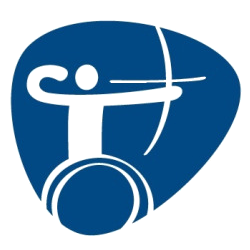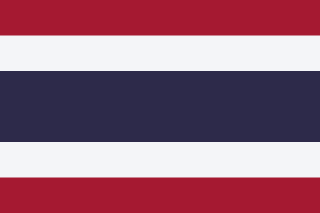| Archery at the I Paralympic Games | |
|---|---|
 Paralympic Archery | |
| Competitors | 19 from 8 nations |
Archery at the 1960 Summer Paralympics consisted of eight archery events, four for men and four for women.
| Archery at the I Paralympic Games | |
|---|---|
 Paralympic Archery | |
| Competitors | 19 from 8 nations |
Archery at the 1960 Summer Paralympics consisted of eight archery events, four for men and four for women.
| Rank | Nation | Gold | Silver | Bronze | Total |
|---|---|---|---|---|---|
| 1 | 2 | 0 | 1 | 3 | |
| 2 | 2 | 0 | 0 | 2 | |
| 3 | 1 | 4 | 5 | 10 | |
| 4 | 1 | 2 | 0 | 3 | |
| 5 | 1 | 1 | 0 | 2 | |
| 6 | 1 | 0 | 0 | 1 | |
| 7 | 0 | 1 | 1 | 2 | |
| 8 | 0 | 0 | 1 | 1 | |
| Totals (8 entries) | 8 | 8 | 8 | 24 | |
| Event | Gold | Silver | Bronze |
|---|---|---|---|
| Men's Columbia round open | Camille Trouverie | Delapietra | Carl Hepple |
| Men's FITA round open | Jack Whitman | Cliff Bradley | Tony Potter |
| Men's St. Nicholas round open | Ross Sutton | Gérard Figoni | Paul Sones |
| Men's Windsor round open | Jack Whitman | Cliff Bradley | van Puymbroeck |
| Women's Columbia round open | Margaret Maughan | Marc de Vos | Diana Gubbin |
| Women's FITA round open | Margaret Harriman | Kathleen Comley | Robin Irvine |
| Women's St. Nicholas round open | Joan Horan | Daphne Ceeney | Christa Zander |
| Women's Windsor round open | Margaret Harriman | Robin Irvine | Kathleen Comley |

The 9th Annual International Stoke Mandeville Games, retroactively designated as the 1960 Summer Paralympics, were the first international Paralympic Games, following on from the Stoke Mandeville Games of 1948 and 1952. They were organised under the aegis of the International Stoke Mandeville Games Federation. The term "Paralympic Games" was approved by the International Olympic Committee (IOC) first in 1984, while the International Paralympic Committee (IPC) was formed in 1989.

The 1964 Summer Paralympics, originally known as the 13th International Stoke Mandeville Games and also known as Paralympic Tokyo 1964, were the second Paralympic Games to be held. They were held in Tokyo, Japan, and were the last Summer Paralympics to take place in the same city as the Summer Olympics until the 1988 Summer Paralympics.

The 1968 Summer Paralympics were the third Paralympic Games to be held. Organised under the guidance of the International Stoke Mandeville Games Federation (ISMGF), they were known as the 17th International Stoke Mandeville Games at the time. The games were originally planned to be held alongside the 1968 Summer Olympics in Mexico City, but in 1966, the Mexican government decided against it due to difficulties. The Israeli government offered to host the games in Tel Aviv, a suggestion that was accepted.

Archery at the 2008 Summer Paralympics consists of nine events, five for men and four for women. The competitions were held at the Olympic Green Archery Field from September 9 to September 15, 2008.
Archery at the 2000 Summer Paralympics consisted of seven events, four for men and three for women. Competitors were divided into three categories:

Para-archery has been contested at every Summer Paralympic Games since they were first held in 1960. Separate individual and team events are held for men and women. Archers are classified according to the extent of their disability, with separate individual events for each of three classes.

Australia has participated officially in every Paralympic Games since its inauguration in 1960 with the exception of the 1976 Winter Paralympics.

France competed at the inaugural Summer Paralympic Games in 1960 in Rome. France's six athletes competed in four sports: archery, athletics, dartchery and swimming. All of France's athletes obtained medals in every event they competed in.

Margaret Gardner Maughan was a British competitive archer, dartcher and lawn bowler. She was Britain's first gold medallist at the Paralympic Games, and won four gold and two silver medals at the Games. She lit the cauldron at the Olympic Stadium in London at the opening ceremony of the 2012 Summer Paralympics.

The United Kingdom of Great Britain and Northern Ireland, competing as Great Britain, participated in the inaugural Paralympic Games in 1960 in Rome. The 1960 Paralympics, now considered to have been the first Paralympic Games, were initially known as the ninth Stoke Mandeville Games, Games for athletes with disabilities founded in Great Britain in 1948.

Rhodesia was one of the participants at the inaugural Paralympic Games in 1960 in Rome, where one of its two representatives was Margaret Harriman, in swimming and archery. The country took part in every edition of the Summer Paralympics until 1972. Although Rhodesia was barred from all Olympics from 1968 until its disestablishment in 1979 after its 1965 Unilateral Declaration of Independence from the United Kingdom, it was allowed to participate in the 1968 Tel Aviv and 1972 Heidelberg games because politicians, both from Britain and the host nations of the games, were unwilling to sanction athletes with disabilities. However, the Canadian government refused to grant visas for the Rhodesian Paralympic team to attend the 1976 Toronto Paralympics.

Rhodesia competed at the inaugural Summer Paralympic Games in 1960 in Rome. It was the only African country to take part. Rhodesia sent two competitors to the games, one of whom was Margaret Harriman, who competed in archery and swimming. Harriman won a total of five medals, placing her country 11th out of 17 on the medal table. She took gold in both the archery events she participated in, and won a silver medal and two bronze in swimming.

Archery at the 2012 Summer Paralympics consisted of nine events, five for men and four for women. The competitions were held at the Royal Artillery Barracks from 30 August to 5 September 2012.

Para-archery classification is the classification system for para-archery used to create a level playing field for archers with a different range of disabilities. Governance in the sport is through the International Archery Federation. Early classification systems for the sport were created during the 1940s and based on medical classification. This has subsequently changed to a functional mobility classification with the exception of blind archery.

In September 1943, the British government asked neurologist Ludwig Guttmann to establish the National Spinal Injuries Centre at Stoke Mandeville Hospital in Buckinghamshire. When the centre opened in 1944, Guttmann was appointed its director and held the position until 1966. Sport was introduced as part of the total rehabilitation programme for patients at the centre, starting with darts, snooker, punchball, and skittles, followed by archery.

Archery at the 2016 Summer Paralympics was held between 10 and 17 September 2016 at the Sambadrome Marquês de Sapucaí in the Maracana zone of Rio de Janeiro, and consisted of nine events. Although featuring the same number of events as in the 2012 Paralympic Games in London, their make-up changed substantially, with three men's events, three women's events and three events for mixed gender teams. In each category, two events involved the compound bow - one for wheelchair athletes, the other open - with an open event for recurve bow, the bow used for all Olympic events.

Germany competed at the 2020 Summer Paralympics in Tokyo, Japan, from 24 August to 5 September 2021. This was their sixteenth consecutive appearance at the Summer Paralympics since 1960.

Sweden competed at the 2020 Summer Paralympics in Tokyo, Japan, which took place from 24 August to 5 September 2021. This was their sixteenth consecutive appearance at the Summer Paralympics since 1960. The Swedish team consisted of 26 athletes in 11 sports.

Thailand competed at the 2020 Summer Paralympics from 24 August to 5 September 2021. This was the country's tenth appearance at the Paralympic Games.
Jack Whitman was an American paralympic archer and dartcher. He competed at the 1960 and 1964 Summer Paralympics.